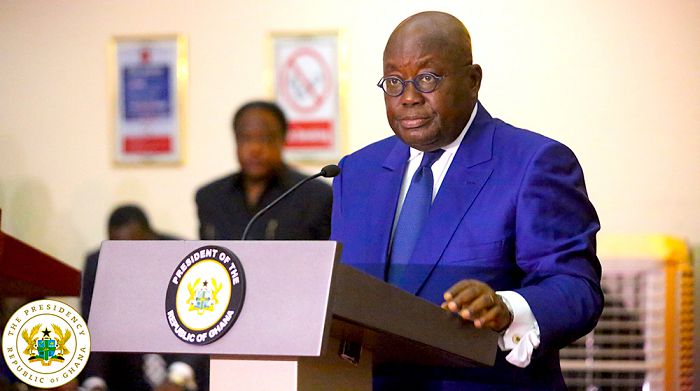Despite the public backlash against the move to impose the Electronic Service Levy (E-Levy), President Nana Akufo-Addo has said the tax regime is critical for closing the revenue gap caused by the COVID-19 pandemic.
He said the unpopular tax proposal is the grand attempt by his government to raise money to fund its economic growth and development through a home-grown initiative.
He said E-Levy was better than depending on unsustainable foreign grants and loans.
“We, ourselves must find the money for our development, and that is why it has become necessary to introduce these measures like this famous tax, which has caused so much unnecessary lively disputation…nevertheless, we would continue…I am determined to persevere to make sure that we find the means to address some of the issues,” he said.
Speaking when a delegation from the Dzodze Traditional Area in the Volta region called on him at the Jubilee House, Accra, the President noted that the emergence of the pandemic had resulted in fiscal deficit pressures and shortfalls in revenues needed to support the country’s post-Covid-19 recovery.
READ ALSO: Court orders UEW to reinstate Prof. Mawutor Avoke
He said the negative social and economic impact from the COVID-19 risked reversing many of the monumental gains made by the Government prior to the onset of the pandemic, insisting that the Government was determined to find ways to address the revenue gaps in the 2022 budget to keep the country on the path of growth and development.
With 2020 and 2021 revenues recording unfavourable shortfalls, with accompanying economic meltdown, President Akufo-Addo said the government, unavoidably, had to spend beyond its budgetary limits to provide palliatives such as free water, free electricity, and free food among others during the height of the pandemic, temporarily distorting the country’s fiscal space.
"Based on this, the gap in fiscal impact would have to be considered. These are the efforts that we are now making to raise money, which are being resisted by the opposition to try and close it down.
“It is necessary for us to do so because that is the only way in which some of these matters can be addressed. It is never going to be possible for us [Ghana] to continue to depend on foreign aid and grants to keep our economy going.





